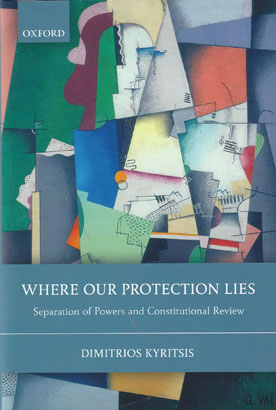
In this book Dimitrios Kyritsis advances an original account of constitutional review of primary legislation for its compatibility with human rights. Key to it is the value of separation of powers. When the relationship between courts and the legislature realizes this value, it makes a stronger claim to moral legitimacy.
Kyritsis steers a path between the two extremes of the sceptics and the enthusiasts. Against sceptics who claim that constitutional review is an affront to democracy he argues that it is a morally legitimate institutional option for democratic societies because it can provide an effective check on the legislature.
Although the latter represents the people and should thus be given the initiative in designing government policy, it carries serious risks, which institutional design must seek to avert. Against enthusiasts he maintains that fundamental rights protection is not the exclusive province of courts but the responsibility of both the judiciary and the legislature.
Although courts may sometimes be given the power to scrutinize legislation and even strike it down, if it violates human rights, they must also respect the legislature's important contribution to their joint project. Occasionally, they may even have a duty to defer to morally sub-optimal decisions, as far as rights protection is concerned.
This is as it should be. Legitimacy demands less than the ideal. In turn, citizens ought to accept discounts on perfect justice for the sake of achieving a reasonably just and effective political order overall.